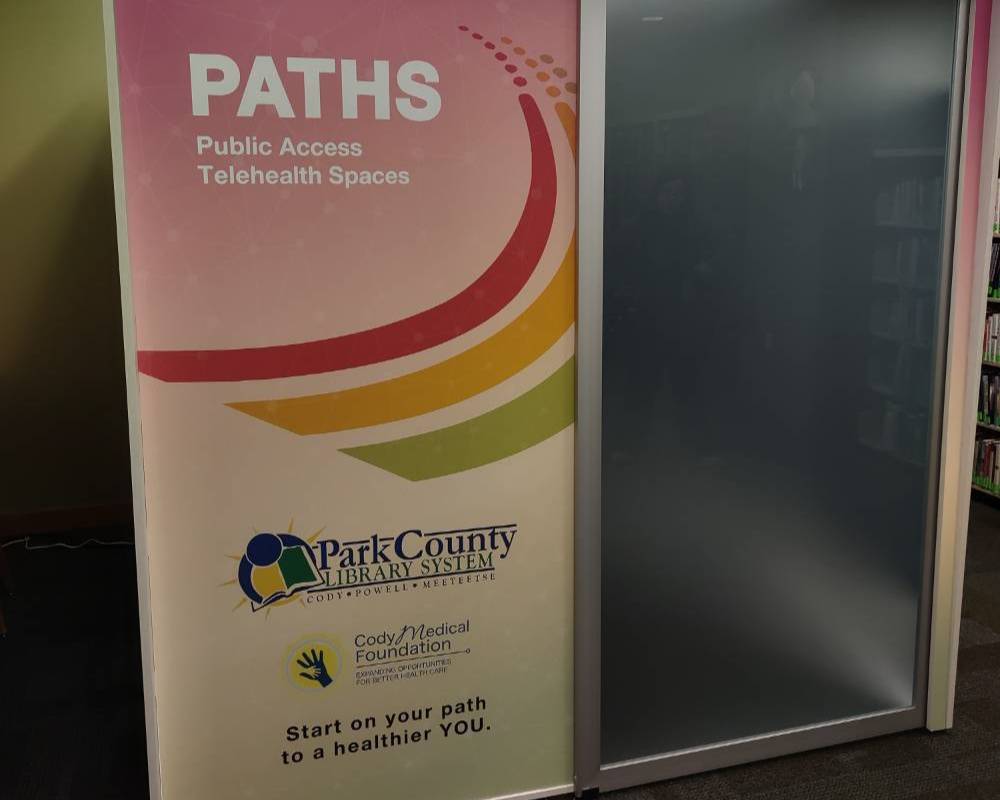PATHS Initiative Goals
Healthcare Equity
Address healthcare equity by creating originating sites for community access to healthcare in stigma-free environments.
Inclusion
Build an inclusive provider network for coordination of care, communication between organizations, and greater awareness of resources for community members.
Support
Support library partners in guiding implementation of telehealth in library spaces.
About Public Access Telehealth Spaces
The Public Access Telehealth Spaces (PATHS) Initiative was developed from a collaboration between a public library and a mental health provider to explore ways to make healthcare more accessible and address stigma in seeking care. This pilot project, developed in Wyoming, has grown to an adaptable model of integrative care and community access. PATHS is about more than installing technology tools in libraries and community spaces, it is about creating connections between providers and communities to integrate and coordinate care to address issues of equity and access to services and supports. PATHS addresses healthcare prevention, education, and intervention to provide a comprehensive network of support through telehealth tools in accessible community spaces. The PATHS model is developed from working with public libraries as part of a state library system; however, the model can be adapted for use in other community spaces (e.g. senior center, community center, community college).

Why Telehealth?
Telehealth options provide wider availability of mental healthcare, physical healthcare, and specialist options in rural communities. While telehealth appointments offer broader access to medical care in rural communities, many community members lack stable internet and technology to connect with telehealth appointments from home. Further, community members may not have privacy to be open with mental or physical health provider appointments at home. Those who struggle with abuse or domestic violence may lack safety to be open with healthcare providers from home. Telehealth and telemedicine became especially critical in addressing physical and mental health needs during the COVID-19 pandemic (American Medical Association [AMA], n.d.).
To address needs in underserved populations and rural areas, expansion of care goes beyond efforts to establish broader scope of practice (AMA, n.d.). According to the American Telemedicine Association ([ATA]; n.d.), telehealth provides opportunity for healthcare options for populations and geographic locations without equitable healthcare options. The goal of telehealth is to provide safe, equitable, and accessible healthcare for all community members. Telehealth benefits include broader access to care, efficiency in delivery of services, equivalent quality of care, and support to meet demand for healthcare needs (ATA, n.d.).
Why Libraries?
While telehealth is expanding in healthcare fields, many community members lack access to reliable internet access and equipment to connect with healthcare providers via telehealth from home. Emerging trends in addressing disparities in healthcare access identify public libraries as community hubs ideal for connecting community members to telehealth providers (DeGuzman et al., 2021). Library telehealth spaces would provide a safe location to connect with providers for those who do not have a safe home environment (e.g. domestic violence, sensitive health education consultation needs, substance use treatment, mental health). Libraries have access to reliable broadband internet. Therefore, library telehealth spaces would provide confidential access to providers to help address needs. Public libraries typically have designated stops on public transportation to help provide access to low income individuals and those with disabilities. Various pilot programs have explored telehealth access through libraries.

